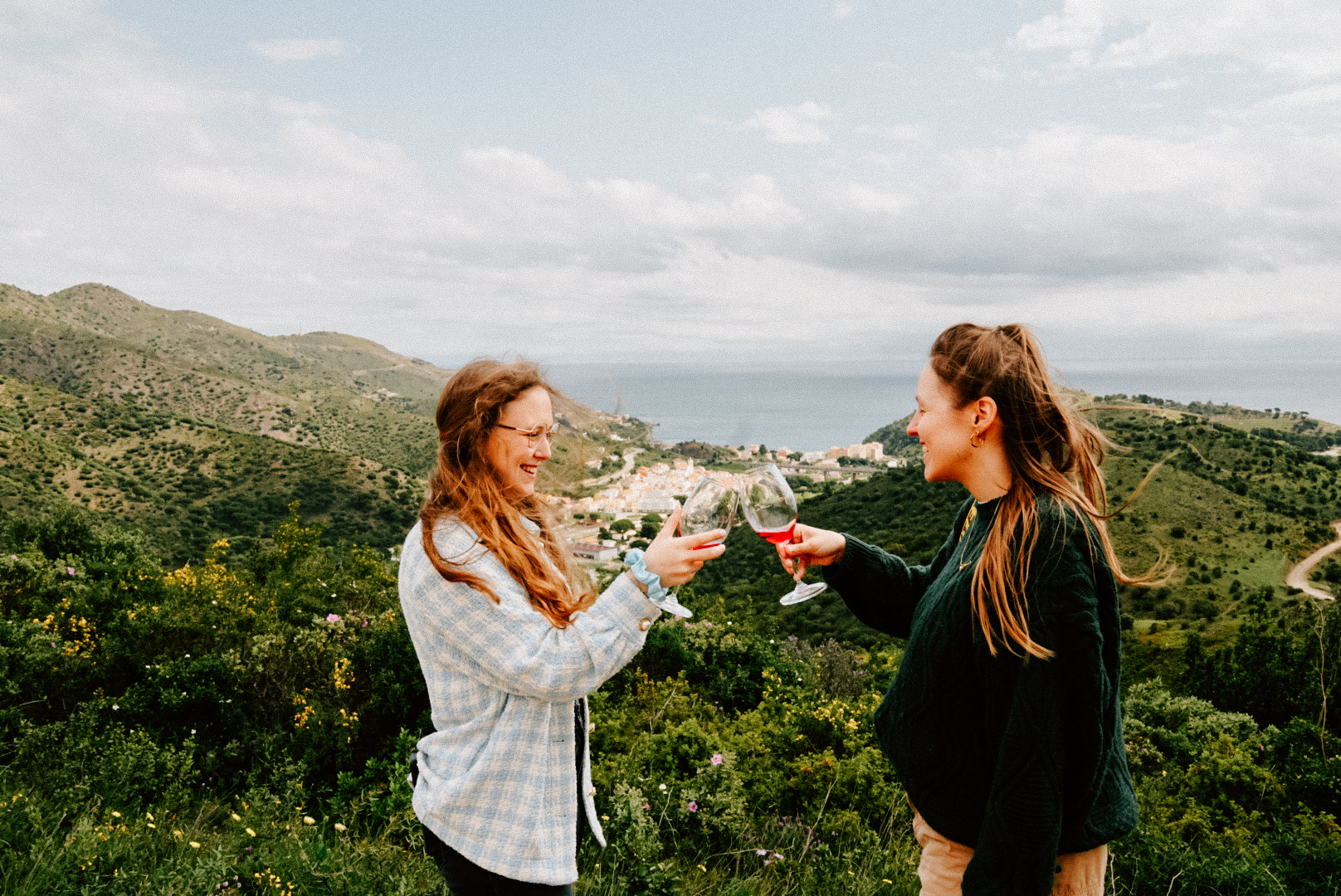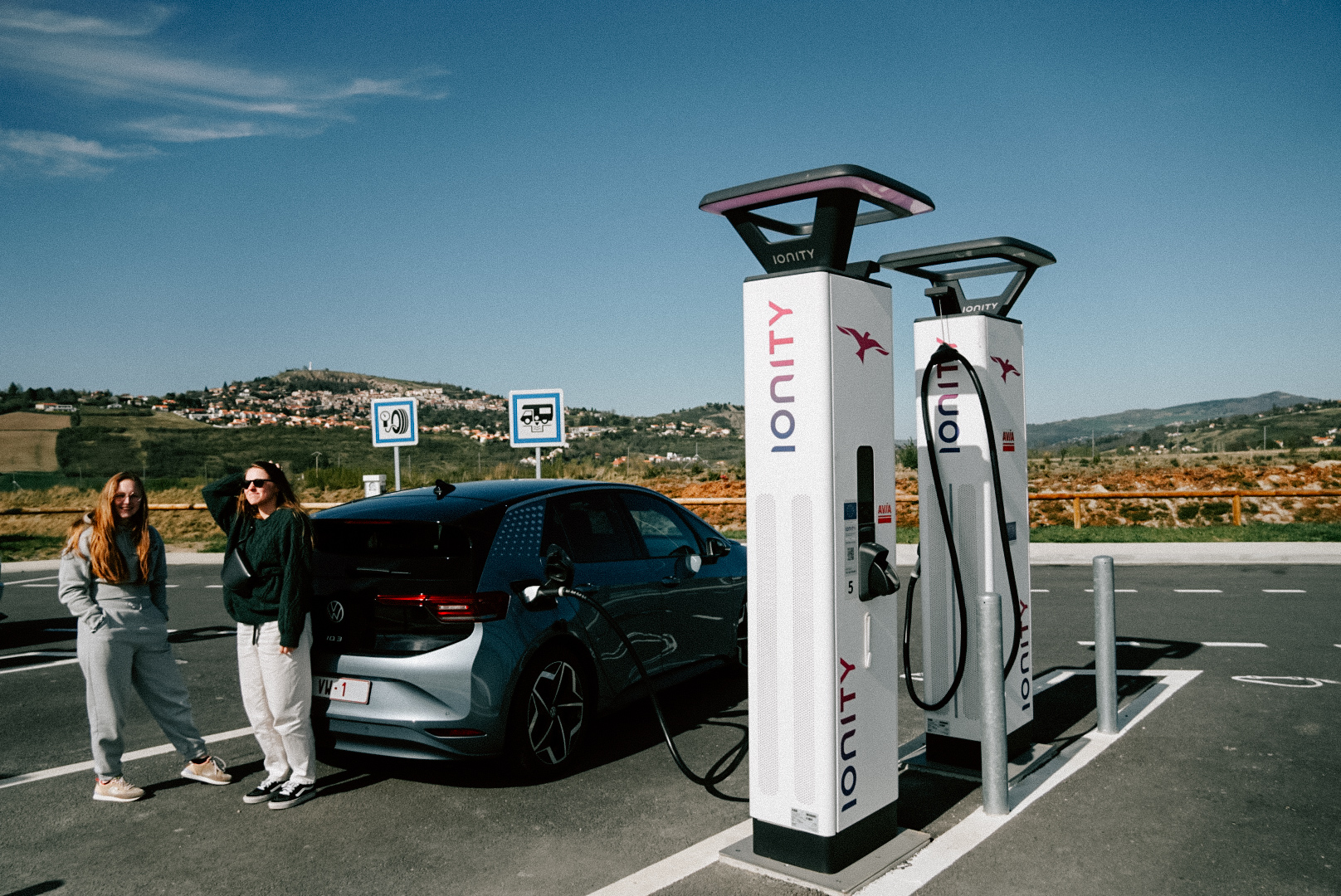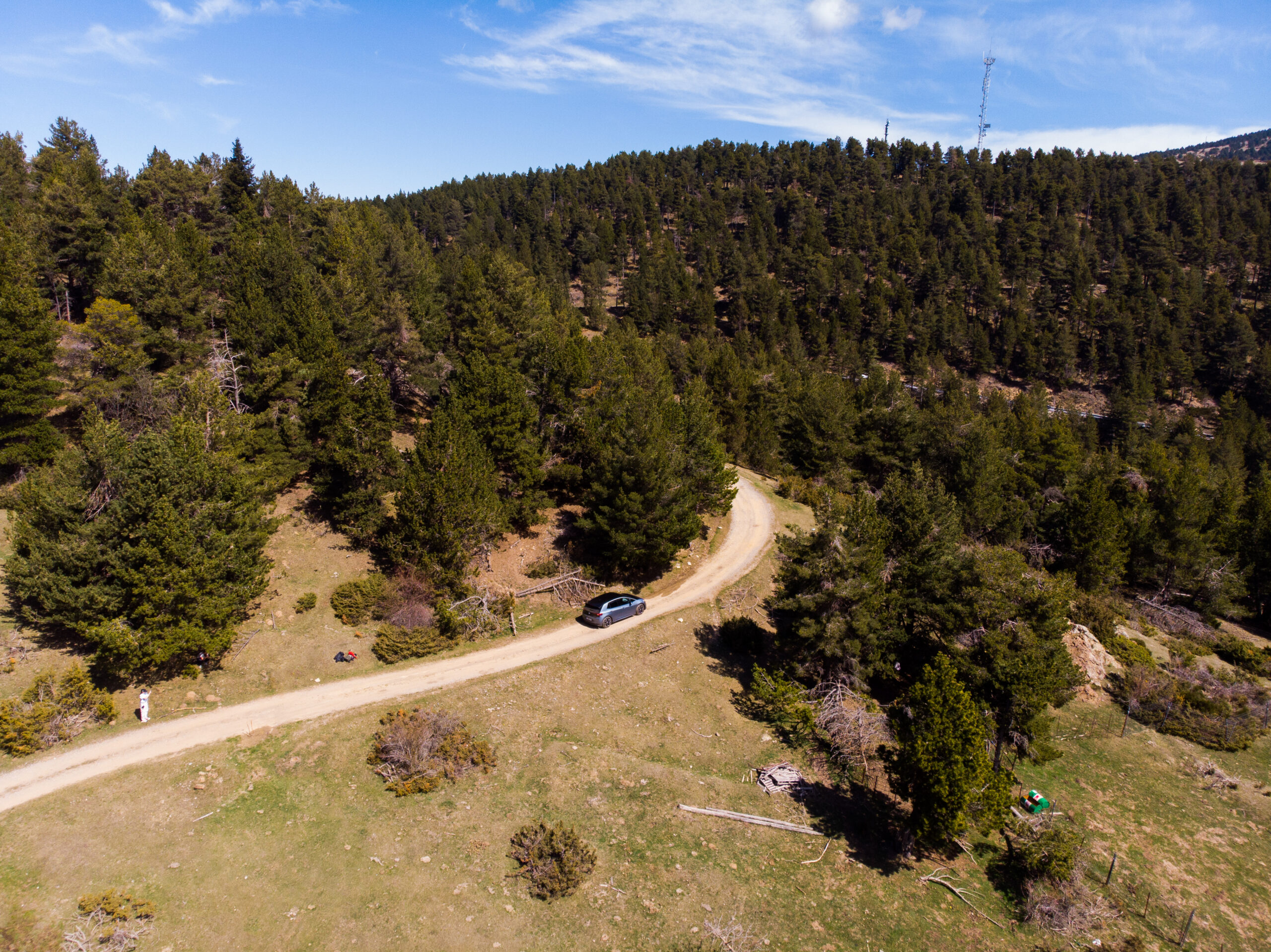
Duurzame reisgids voor Portugal
Een diep praktische gids, gebaseerd op geleefde ervaring, duurzaamheidsexpertise en vier jaar wonen aan de westkust van Portugal
Waarom deze duurzame reisgids voor Portugal ertoe doet
Portugal mag dan beroemd zijn om zijn gouden stranden en pastel de nata, maar écht reizen hier gaat veel dieper dan dat. Deze gids is geschreven voor reizigers, families, digitale nomaden en toerismepartners die Portugal willen ontdekken op een verantwoorde, regeneratieve en oprechte manier.
En ik schrijf dit niet als een buitenstaander die toekijkt.
Mijn persoonlijke weg naar Portugal — en waarom duurzaamheid voor mij telt
Portugal was mijn tweede thuis lang voordat het mijn echte thuis werd. Ik bezocht het tientallen keren, keer op keer terugkerend voor de kliffen, de cultuur, de wilde oceaan en iets wat ik toen nog niet kon benoemen.
Tot die ene avond in 2019, terwijl ik vanaf de kliffen van Porto Covo de zon in de Atlantische Oceaan zag zakken. Ik voelde het in elke cel:
“Ik ga hier wonen. Ik hoor hier.”
Het leven had natuurlijk andere plannen.
2021 werd het jaar waarin alles uit elkaar viel — ik verloor 100K in business, mijn relatie eindigde abrupt, en iemand die ik liefheb kreeg de diagnose van een zeldzame vorm van kanker. Het was zo’n seizoen dat je dwingt te kiezen tussen instorten of opnieuw worden wie je moet zijn.
Dus gooide ik mijn spullen in een oude auto en reed naar het zuiden. Geen plan. Alleen instinct.
Die weg bracht me naar Ericeira, en ik was onmiddellijk verkocht — de golven, de kliffen, de rauwe eerlijkheid van het landschap. Vier jaar later ben ik er nog steeds.
Maar ik zag ook iets pijnlijks gebeuren:
Ericeira veranderde in een hotspot van overtoerisme.
Prachtig, ja — maar zwaar belast. Stijgende prijzen, druk op de natuur, overprikkelde locals.
Daarom stopte ik met het actief promoten van Ericeira voor toerisme en vestigde ik me in een rustig dorpje tussen de wijngaarden in de buurt. Een plek met langzamere ritmes, lokale boeren en échte authenticiteit. Hier bouw ik ook Boavida Tribe — een duurzaam glamping retreat voor ondernemende families die op zoek zijn naar langere verblijven, natuur en herverbinding.
En dát is precies waarom deze gids bestaat:
📍 om het Portugal te beschermen waar ik van hou
📍 om reizigers te helpen betere keuzes te maken
📍 om toerismediensten aan te moedigen duurzame praktijken te versterken
📍 om regio’s te belichten die aandacht nodig hebben — en verdienen
📍 om reizen betekenisvol te maken in plaats van uitputtend
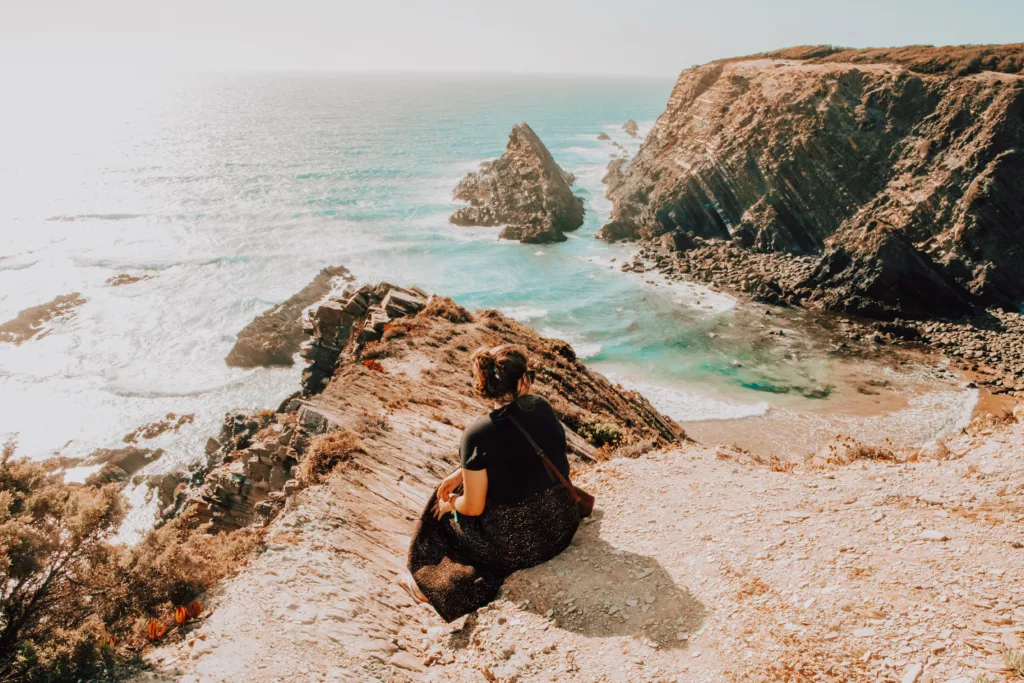
1.
Inzicht in duurzaam toerisme in Portugal
Portugal ervaart op dit moment een van de snelste toerismegroeicijfers van heel Europa. Dat brengt kansen met zich mee — maar ook druk.
Duurzaam reizen betekent:
- Kiezen voor minder bezochte regio’s
- Reizen in het tussenseizoen of laagseizoen
- Langer blijven en trager bewegen
- Lokale ondernemingen steunen in plaats van grote ketens
- Respect tonen voor natuur en lokale cultuur
- Je ecologische voetafdruk verkleinen
- Positief bijdragen aan de gemeenschap
Regeneratief reizen gaat nóg een laag dieper — plekken beter achterlaten dan je ze gevonden hebt, door herstel, biodiversiteit en lokale bestaansmiddelen te ondersteunen.
Deze gids brengt beide principes samen.
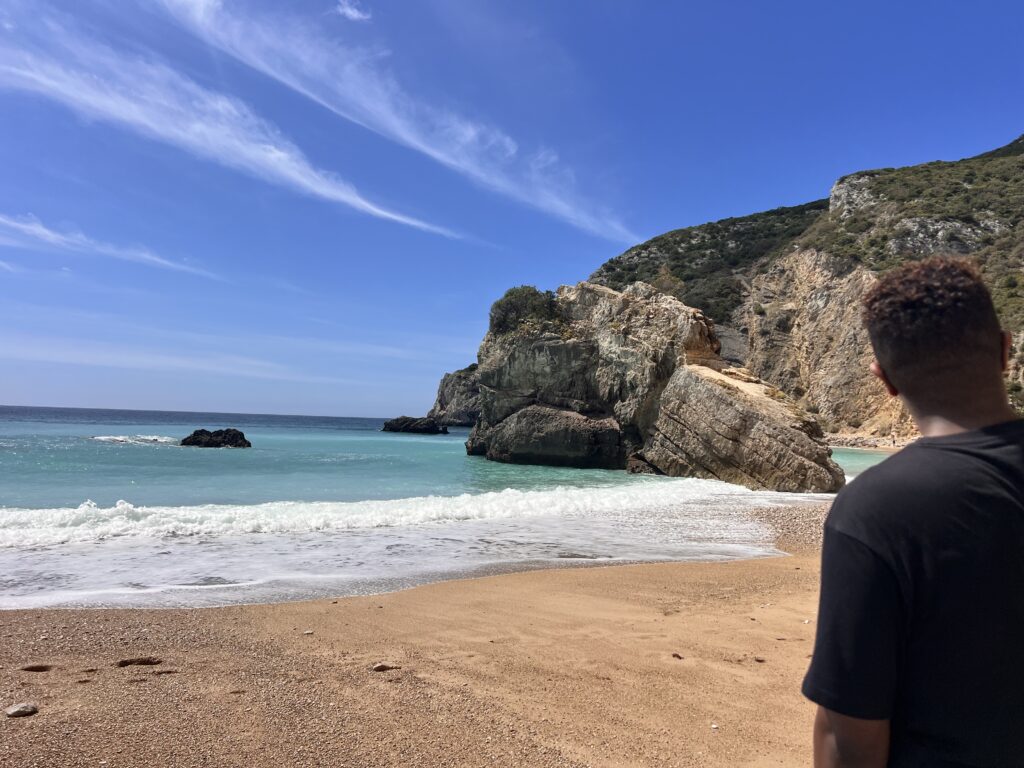
2. De beste tijd om Portugal op een duurzame manier te bezoeken
Hoog seizoen (juni–augustus)
Niet aanbevolen — druk, duur en een hoge milieubelasting.
Tussenseizoen (april–juni, september–november)
⭐ Beste keuze voor duurzaam reizen
Perfect weer, minder drukte, betere beschikbaarheid en meer écht contact met locals.
Laagseizoen (december–maart)
Perfect voor:
- Remote work retreats
- Surfen
- Hiken
- Cultuur- en gastronomietrips
- Budgetvriendelijke verblijven
Zelfs de Algarve wordt in de winter rustig en bijna magisch — een geheim dat ik al jaren deel om overtoerisme tegen te gaan.

3. Waar je naartoe moet: de meest duurzame regio’s van Portugal
To avoid overtourism, choose regions that welcome visitors sustainably:
Ericeira Region — Visit Between October and June & Stay Long-Term
Ericeira is one of Portugal’s coastal jewels — surf culture, dramatic cliffs, golden light, and a naturally vibrant community. But in peak summer, it transforms under the weight of overtourism. The charm is still there, but it’s harder to feel. Harder to honour.
If you truly want to experience Ericeira sustainably, come between October and June. These months are when the soul of the village is visible again: the surfers, the fishermen, the local cafés, the cliff walks, the slower rhythm.
This is when you can fall in love with the real Ericeira — the one locals know and protect.
And here’s the thing:
You don’t need to stay right in the busy centre to feel that magic. The surrounding villages are where the heartbeat really is — vineyards rolling into the horizon, quiet roads, ocean views that make you exhale, and a community that still values slowness and connection.
It’s exactly why I chose to live here, in a small village just outside the centre, and why Boavida Tribe, my sustainable glamping project for entrepreneurial families, is taking shape right here in this landscape.
If you want to explore the area the same way locals do — gently, freely, and without rushing — you can also rent my car or campervan. It’s the easiest way to wander along the coast, slip into hidden beaches, visit the vineyards, and move slowly between the villages without relying on crowded summer traffic or big rental companies.
Out here, mobility becomes part of the experience: simple, flexible, and rooted in the rhythm of the place.
Why this region is perfect for conscious travellers
Stay long enough — a month, a season, or at least a few weeks — and the place opens up to you:
- The rhythm of the waves
- The warmth of the community
- The farmers at the weekly market
- The surf spots only locals talk about
- The long lunches, small conversations, sunset rituals
Ideal for:
- Long-term stays (1–3 months or more)
- Entrepreneurial and remote-working families
- Slow-living and nature seekers
- Community-based travel
- Surf meets serenity
Ericeira isn’t just a destination — it’s a place to arrive inwardly.
But only if you give it the space, the time, and the season it deserves.
Santa Cruz & Torres Vedras — Coastal Calm, Wine Country & Under-the-Radar Beauty
If you’re looking for a region that quietly steals your heart, this is it.
Santa Cruz and the wider Torres Vedras area are ideal examples of destinations that welcome visitors without feeling strained by them. Think: endless stretch of wild beaches, relaxed surf towns, vineyard-covered hills, and a calm energy that invites you to breathe deeper.
This region is perfect for travellers who want the coastline without the crowds, and culture without the rush. You’ll find family-owned wineries, slow-food restaurants, agricultural landscapes, and wide-open natural spaces where you can wander, think, create, and reconnect.
Why it’s ideal for sustainable travel:
- Off the radar, even for many Portuguese
- Strong farm-to-table culture
- Excellent for longer stays and remote work
- Perfect mix of coast + countryside
- Welcoming local communities that value mindful tourism
If you want space, beauty, and authenticity — without overtourism — this region delivers every time.
Alentejo — Portugal’s Slow Soul
Alentejo is where the pace of life softens. It’s one of Europe’s most peaceful regions, a place where the land stretches wide and open, the cork forests are sacred, and time moves differently.
It’s also one of Portugal’s strongest examples of naturally sustainable tourism. Not because of trends, but because the entire region is shaped by authenticity, tradition, and slowness.
Picture sunrise over golden plains. Small villages where locals still greet you with time and warmth. Hidden beaches along the Alentejo coast where the only soundtrack is the ocean itself.
Why ALENTEJO is a sustainable traveller’s dream:
- Low visitor density
- Strong preservation of culture and nature
- Locally owned guesthouses and rural farm stays
- Ideal for longer, reflective trips
- Fantastic for hiking, cycling, and mindful coastal walks
This is the kind of place you don’t just visit — you absorb it.
Centro Region — Mountains, River Beaches & Real Portugal
The Centro Region (Central Portugal) is one of the country’s best-kept secrets. Here, sustainability is simply a way of life.
Schist villages cling to mountain slopes, river beaches shimmer under summer light, forests run deep and green, and communities still maintain traditions passed down for centuries.
If you want a version of Portugal untouched by mass tourism — this is where you find it.
Centro is perfect for:
- Mountain lovers
- Hikers and outdoor enthusiasts
- Culture seekers
- Remote workers craving nature
- Families wanting slower, quieter stays
Why it’s sustainable:
- Tourism is spread across many small villages
- Strong local craftsmanship and food culture
- Naturally low-impact and nature-focused
- Excellent infrastructure for hiking and rural stays
It’s the region that reminds you what matters: nature, calm, connection.
Peneda-Gerês National Park — Portugal’s Wild Heart
If you want to experience Portugal’s purest nature, go to Peneda-Gerês National Park. It’s the country’s only national park and one of the most breathtaking places to explore slowly and sustainably: waterfalls, ancient forests, wild horses, granite peaks, and timeless mountain villages.
Gerês isn’t built for mass tourism — and that’s exactly why it’s so special.
Why Gerês is a top choice for sustainable travel
- Protected landscapes with low visitor pressure
- Endless hiking trails and wild swimming spots
- Traditional villages that rely on small-scale tourism
- Natural silence, starry nights, and deep reconnection
Getting around sustainably
Because Gerês is remote, public transport is limited. The most responsible way to explore the region fully — waterfalls, lagoons, panoramic viewpoints — is with a small car or campervan.
👉 You can rent our campervan or one of our cars, perfect for slow travel, scenic routes, and long stays in nature.
It supports local operators instead of big rental chains and gives you the flexibility Gerês requires.
Ideal for
- Hikers and nature lovers
- Long weekends or 1–2 week slow-travel stays
- Couples, families, and remote workers wanting a reset
Gerês shows you how to move gently, breathe deeper, and reconnect with what really matters — one trail, one waterfall, one quiet viewpoint at a time.
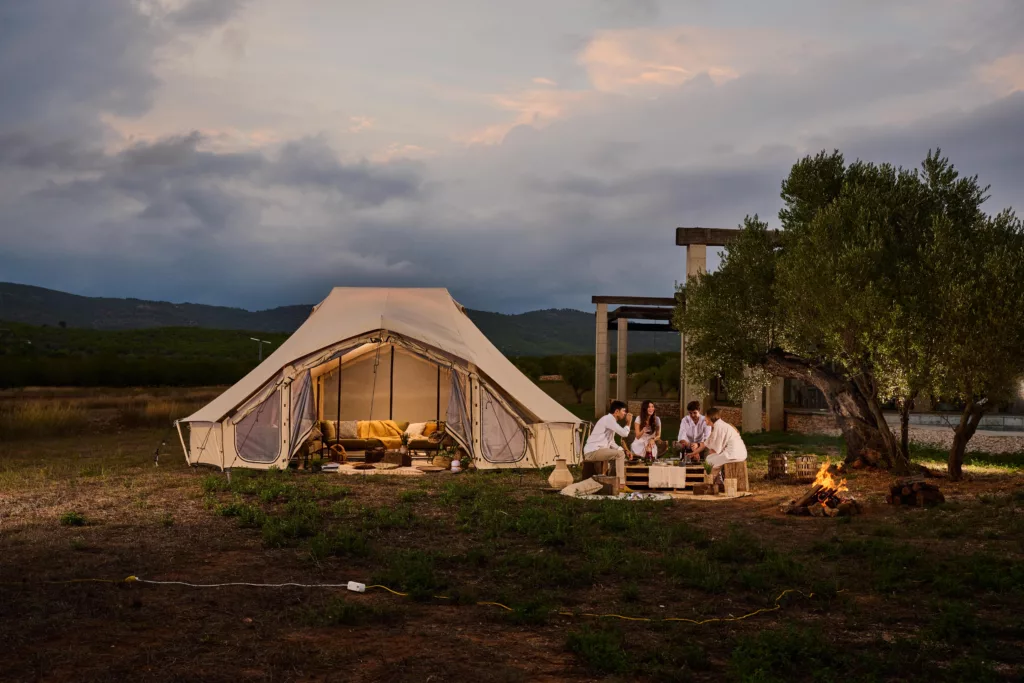
4. Sustainable Accommodation in Portugal (Short & High-Impact)
Where you choose to stay shapes your entire footprint in Portugal. Sustainable accommodation isn’t about fancy eco-labels — it’s about supporting places that honour the land, the community, and the slower rhythm Portugal is known for.
Choose Local, Not Large
Portugal shines through family-run guesthouses, rural farm stays, eco-glampings, and quintas. These places invest in their communities, use fewer resources, and give you a more authentic, grounded experience than any chain hotel ever could.
Stay Longer, Reduce Impact
Whether it’s a week or a month, longer stays naturally:
- reduce transport emissions
- support local economies
- slow down your pace
- deepen your connection with the region
The vineyard villages around Ericeira, coastal Torres Vedras, Alentejo’s rural estates, and the quiet mountain homes near Gerês are especially welcoming to long-stay travellers and remote-working families.
Look for Real Sustainability
The most meaningful stays usually have:
- renewable energy
- water-saving systems
- locally sourced food
- small-scale design
- genuine ties to the land and neighbours
You feel the difference the moment you arrive.
Mobility Matters
Many of Portugal’s most sustainable stays live a little off the beaten path — in vineyard villages, forested hills, and peaceful coastal stretches far from the hectic summer hotspots. To explore these areas responsibly, a small car or campervan is often the most flexible, low-impact option. It lets you travel slowly, take scenic routes, and avoid feeding the infrastructure of overtourism.
If you prefer exploring this way, you can also rent my campervan or car, which keeps your travel footprint lighter and supports small-scale, local-led tourism rather than large corporate rental chains.

5. Eating & Shopping Sustainably in Portugal
The easiest way to travel sustainably in Portugal starts with what you choose to put on your plate — and who you support with your wallet.
Eat like a local (with intention)
Portugal’s food culture is built on seasonality, simplicity, and community. When you eat like a local, you naturally lower your footprint and support the people who keep these traditions alive.
Choose:
- Seafood from sustainable fisheries (ask for local catch)
- Seasonal vegetables from the weekly market
- Artisanal cheeses and fresh bread made that morning
- Tascas — family-run restaurants with real stories and real recipes
- Olive oil tastings from local producers
- Vineyard restaurants serving regional, farm-to-table meals
Good food tastes even better when it sustains the place that made it.
Shop consciously (and skip the mass-produced stuff)
Portugal is full of craftspeople keeping centuries-old techniques alive. Your purchase matters more than you think.
Look for:
- Local artisans (ceramics, textiles, wood)
- Cooperatives that uplift rural communities
- Authentic Portuguese ceramics
- Cork products made in Portugal, not imported imitations
- Embroidery from Madeira or Minho
- Fair-trade and zero-waste markets
And skip the mass-made souvenirs — most aren’t Portuguese at all, and they don’t sustain anyone here.
6. Travel Off-Season & Off-Path
Portugal is magical all year, but the country breathes more freely outside the busy summer months. If you want your trip to be both meaningful and low-impact, combine off-season timing with less-known destinations.
Choose:
- October–June for coastal regions
- Winter for Algarve and Douro
- Weekdays instead of weekends
- Countryside villages instead of international hotspots
Your presence becomes a benefit rather than a burden — and you experience Portugal at its most authentic.
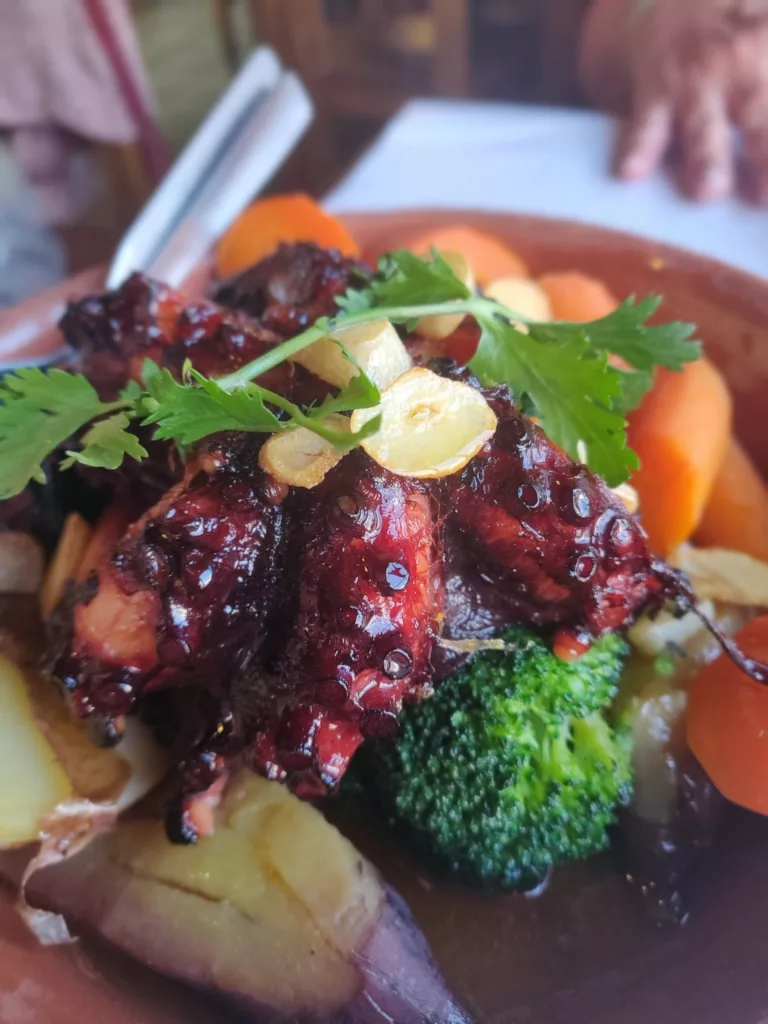
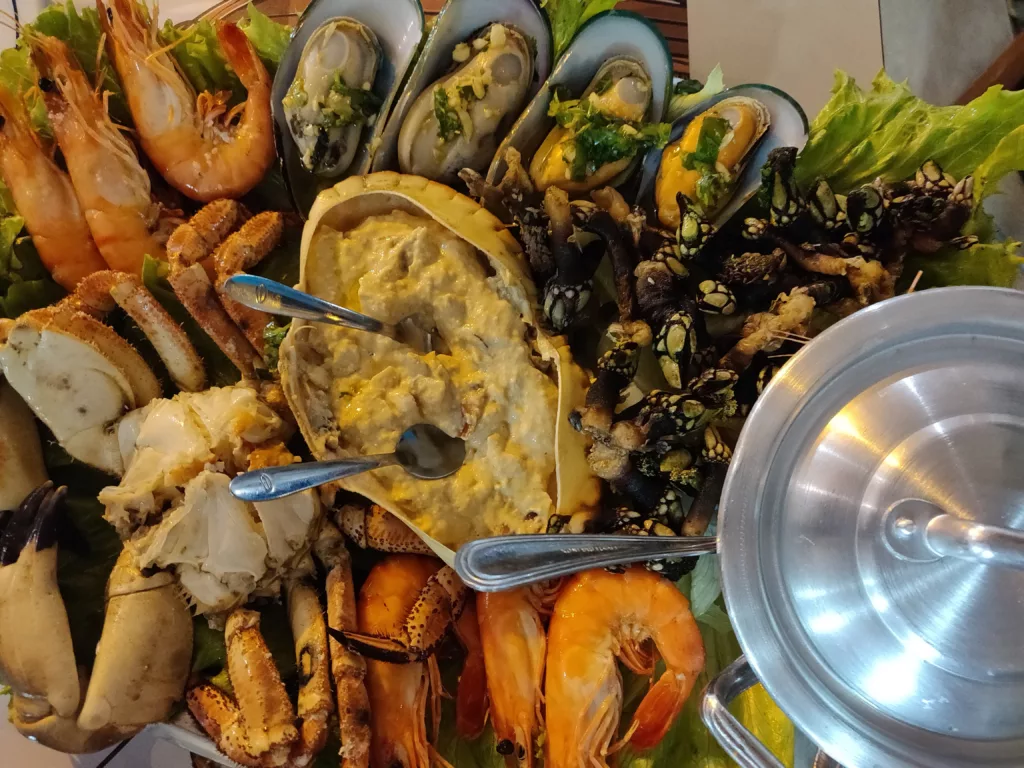
7. Nature, Outdoors & Wildlife — The Ethical Way
Portugal’s landscapes are beautiful because they’re still wild. Keeping them that way is everyone’s responsibility.
Please:
- Stay on marked trails
- Don’t disturb dunes or cliffside vegetation
- Carry reusable containers
- Avoid single-use plastics
- Respect surf etiquette
- Support marine and wildlife conservation groups
- Don’t geotag hidden beaches — protect them from sudden popularity
Sustainability isn’t just a mindset — it’s a practice. One small choice at a time.
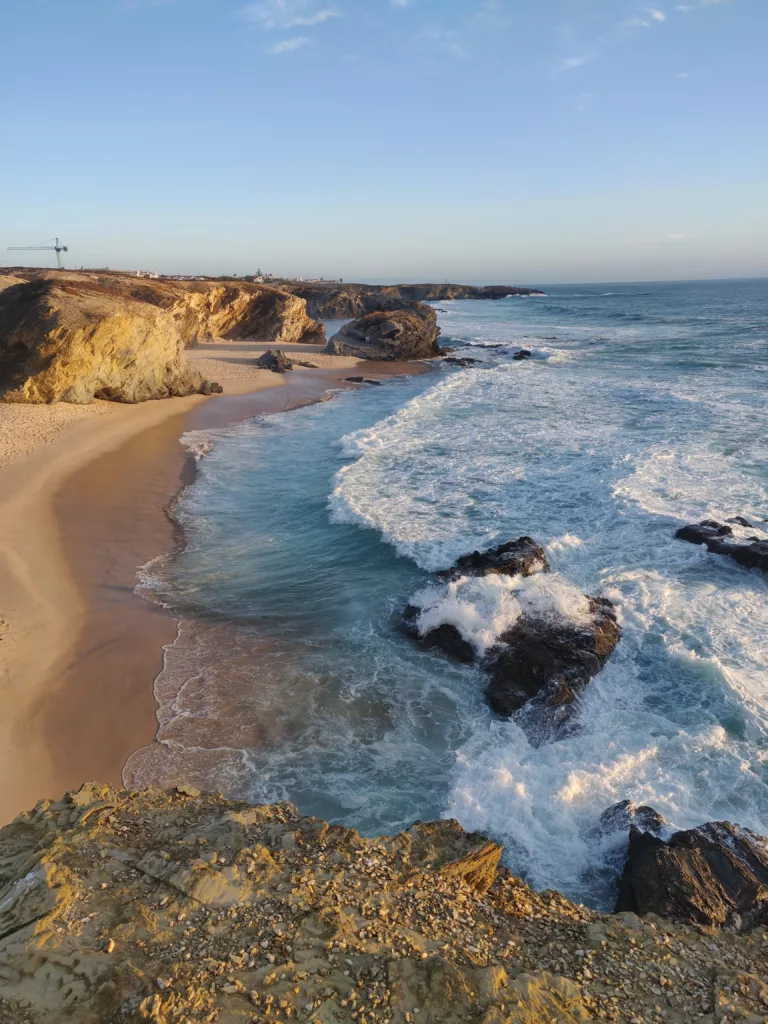
8. Connecting With Communities Respectfully
Portugal’s greatest treasure isn’t the coastline — it’s the people.
Portuguese communities are warm, humble, proud, and deeply rooted in place. When you slow down enough to meet them, your trip becomes something more than travel.
Here’s how to connect in a way that honors the culture:
- Learn a few Portuguese greetings (they go a long way)
- Support family-owned businesses
- Respect local festival traditions
- Spend money where locals spend theirs
- Ask questions instead of assuming
- Listen more than you photograph
Travel is a privilege. Treat it like one.
9. Regenerative Travel in Portugal
If sustainable travel is about minimizing harm,
regenerative travel is about creating positive impact.
It’s the shift from simply “not damaging” a place to actively helping it thrive — ecologically, culturally, and economically.
Portugal offers countless ways to do that:
- Join vineyard biodiversity projects
- Visit or support regenerative farms
- Volunteer in reforestation or cork oak conservation
- Stay in places that genuinely give back
- Support rural revitalization efforts
- Participate in coastal cleanups
- Choose businesses that hire & collaborate locally
Portugal doesn’t need visitors who simply show up —
it needs travellers who choose to belong.
And soon, travellers will also be able to connect with the work happening through Ocean Terra Food Lab — a regenerative coastal project I’m building on a piece of land I purchased near Santa Cruz & Ericeira.
Ocean Terra Food Lab is grounded in one belief:
when you regenerate the land, you regenerate the community.
Together with local growers, fishermen, and land stewards, we’re restoring coastal soil health, bringing biodiversity back, and creating a space where food, ecology, and education meet. It’s long-term, slow, ecosystem-focused work meant to protect this coastline for generations to come.
We’re also opening the door to aligned impact investors — people and organizations who want to support regenerative agriculture, coastal restoration, and sustainable food systems in Portugal. If this kind of work speaks to your values, we’re open to conversations and collaboration.
This is what regenerative travel looks like:
not extraction, but reciprocity.
Not passing through, but participating.
Not just taking memories, but contributing to the future.
Portugal doesn’t need visitors who simply arrive —
it needs travellers who choose to belong.
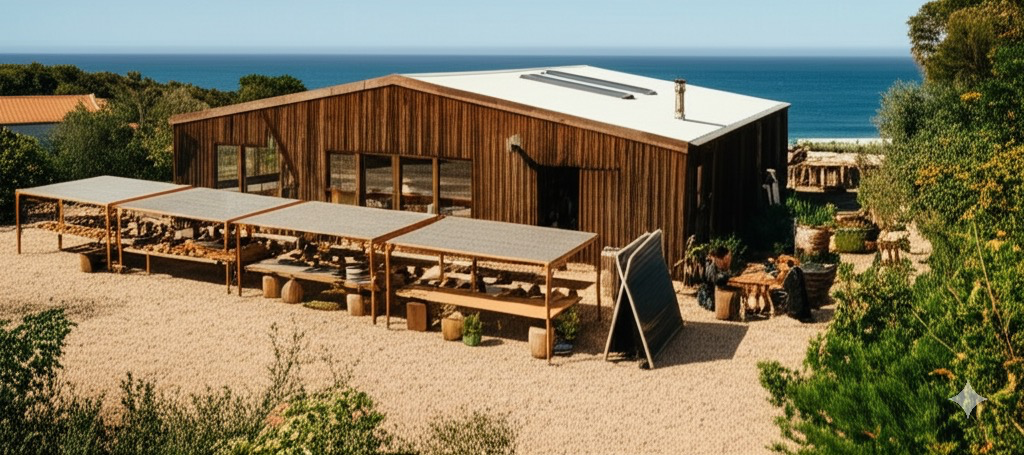
10. A Personal Invitation: Slow Travel Near Ericeira (and Our Vision for Regeneration)
10. A Personal Invitation: Slow Travel Near Ericeira
I live in a small village outside Ericeira — a quiet place surrounded by vineyards, gentle hills, and a rhythm that feels like the antidote to modern life. It’s close enough to the coast to feel the sea breeze, but far enough from the crowds to breathe again. This is the environment that shapes my work, my life, and the projects I’m building.
Just a few kilometers from my home, right by the ocean, lies the land where both Boavida Tribe and Ocean Terra Food Lab are coming to life
BOAVIDA TRIBE — A Regenerative Glamping Community for Entrepreneurial Families
Boavida Tribe — A Beachside Getaway for Families Who Need Space to Just Be
Boavida Tribe is being built on coastal land overlooking the Atlantic, with the beach only a short walk away. It’s designed as a place where families can finally switch off the noise, reconnect, and enjoy time together without rushing through their days.
It’s:
- close to the beach
- surrounded by raw coastal nature
- built for long stays
- designed for comfort & wellness
- spacious enough for kids to roam and parents to breathe
- grounded in community, not crowds
Boavida Tribe isn’t a spiritual retreat or a minimalist wellness bubble.
It’s simply the getaway your family actually needs — a place where you feel held, not hurried.
A place where you find your people. Your tribe.
And yes, we’re open to aligned investors who believe in creating family-focused, nature-connected escapes that honor Portugal’s coastline.
Ocean Terra Food Lab — Regeneration at the Edge of the Atlantic
Ocean Terra Food Lab is designed as a regenerative, solar-powered food innovation hub — where land and ocean meet, and where sustainable food futures are imagined, tested, and brought to life.
Built on permaculture principles and grounded in science, Ocean Terra Food Lab will host a 185m² hybrid greenhouse-lab, fully powered by renewable energy. This is where ideas move from seed to prototype: growing, fermenting, drying, experimenting, and developing low-impact food products inspired by the coast.
It’s a space where:
- chefs
- food scientists
- regenerative farmers
- sustainable founders
- and local producers
come together to innovate, collaborate, and build climate-resilient food systems. Think:
seaweed-based creations, organic coastal crops, edible skincare, preserved ingredients, circular recipes, and small-batch regenerative products — all designed to reduce impact and restore the land.
We’re currently seeking aligned impact investors, partners, and grant collaboration to bring this coastal lab to its full potential. Estimated investment: €165,000–€195,000.
Boavida Tribe offers families a restorative, nature-led getaway.
Ocean Terra Food Lab transforms the land itself — regenerating soil, reimagining food, and activating community.
Together, on the same piece of coastal land, they form one unified vision:
regeneration, connection, and a new way of living with the Portuguese coast.


Frequently Asked Questions About Sustainable Travel in Portugal
1. What is the best time to travel to Portugal sustainably?
April–June, September–November, and winter months are the lowest-impact and most peaceful.
2. How can I avoid overtourism in Portugal?
Stay in countryside villages, visit the coast off-season, choose local businesses, and explore regions like Alentejo, Centro, Torres Vedras, or the Ericeira outskirts.
3. Is Portugal good for long stays and family-friendly slow travel?
Absolutely. Portugal’s climate, community spirit, and diverse landscapes make it ideal for long stays — especially in vineyard villages and along the quieter western coast.
4. What’s the most sustainable way to get around?
Public transport in urban areas; small cars or campervans for rural regions.
(You can rent my car or campervan in Ericeira if you want freedom without the environmental burden of larger rental fleets.)
5. What makes accommodation sustainable in Portugal?
Local ownership, low-impact design, water and energy efficiency, minimal waste, and strong ties to surrounding communities.
6. What is regenerative tourism?
Tourism that restores ecological health, supports community well-being, and leaves places better than before. Portugal’s regenerative farms, cork forest conservation, and coastal restoration projects are great examples.
7. What is Boavida Tribe?
A regenerative glamping project on coastal land near Ericeira, walking distance to the beach. It’s created as the relaxed, restorative family getaway so many parents crave — with community built in.
Open to aligned investors.
8. What is Ocean Terra Food Lab?
A regenerative coastal food innovation hub focused on soil restoration, biodiversity, and sustainable food systems — located directly by the ocean.
Seeking purpose-driven investors, partners, and grants.
9. Why invest in regenerative tourism and food projects in Portugal?
Portugal is emerging as a leader in sustainability, coastal regeneration, and climate-adapted agriculture.
Investment in Boavida Tribe and Ocean Terra Food Lab creates long-term ecological, social, and economic impact — and aligns with national + EU priorities.


